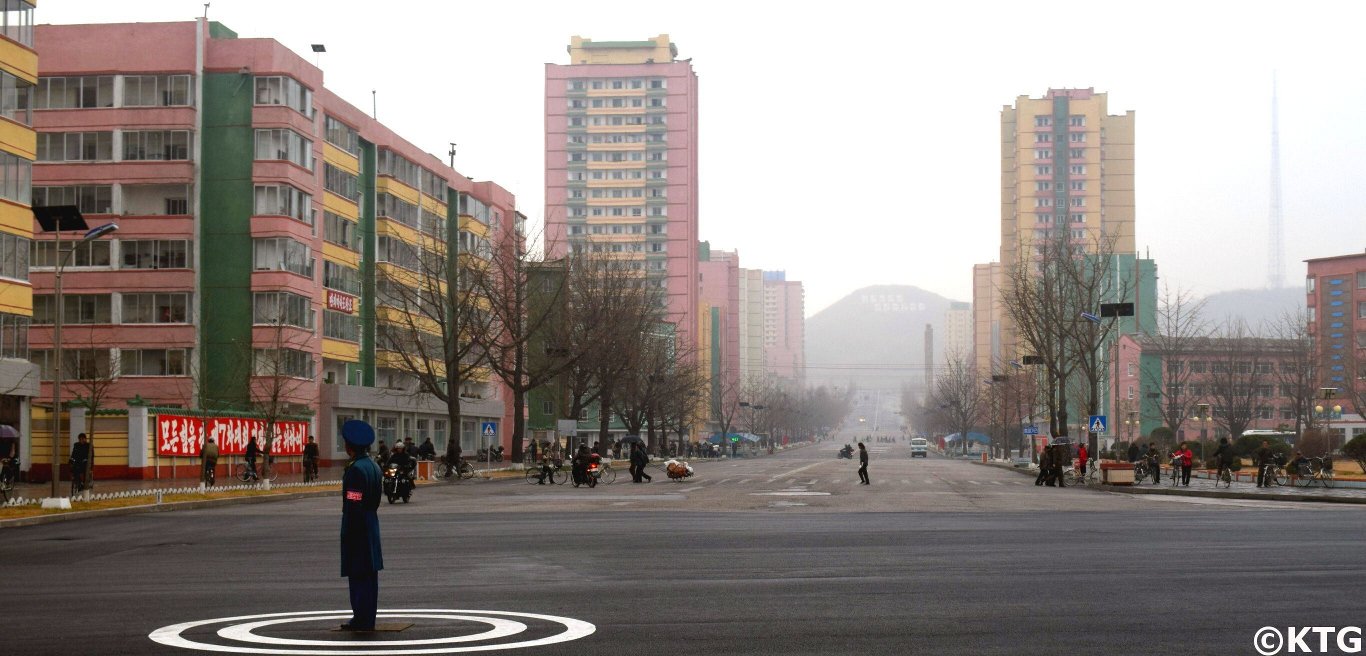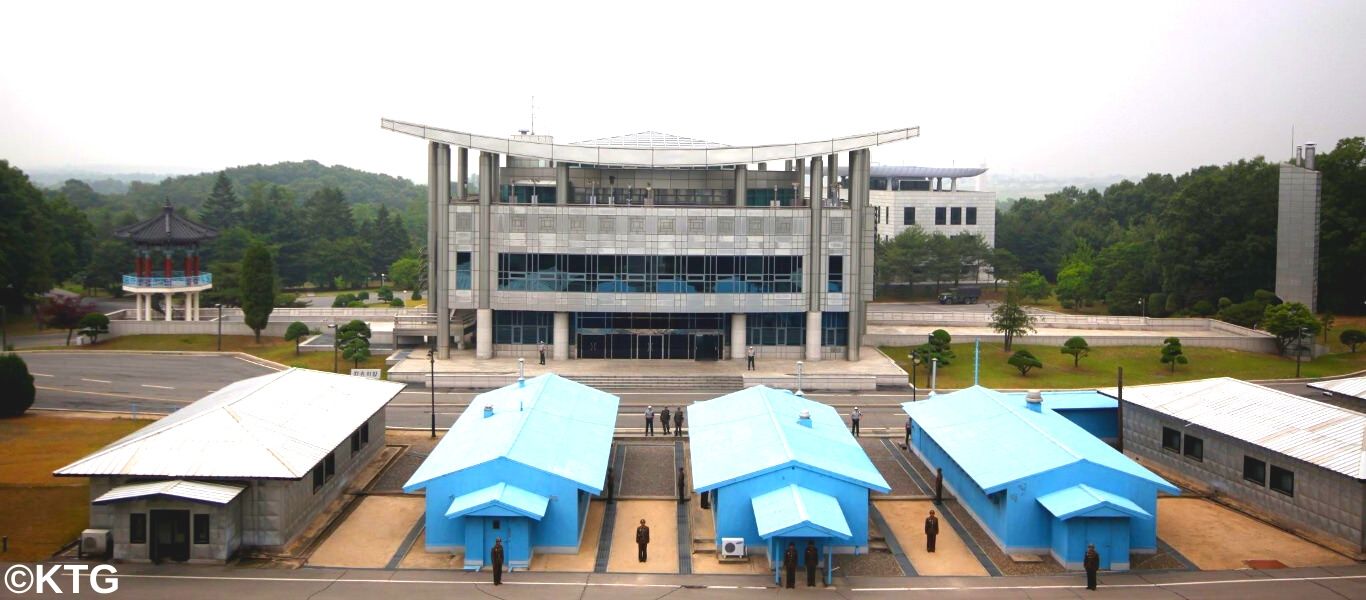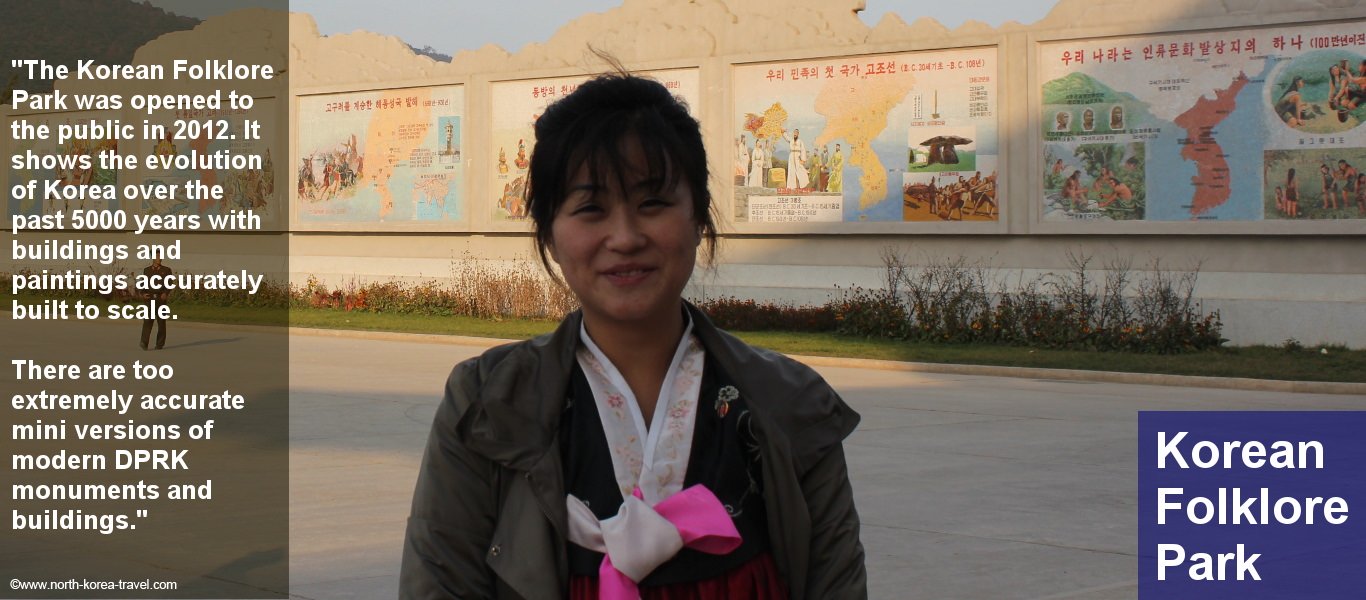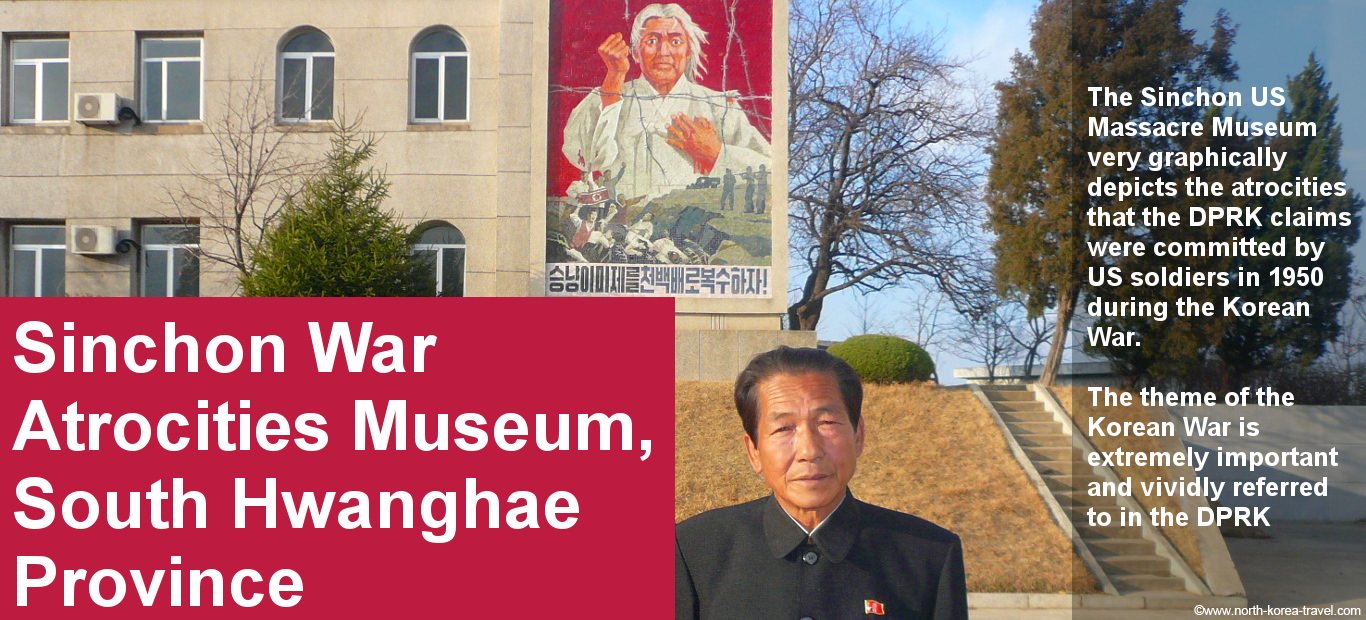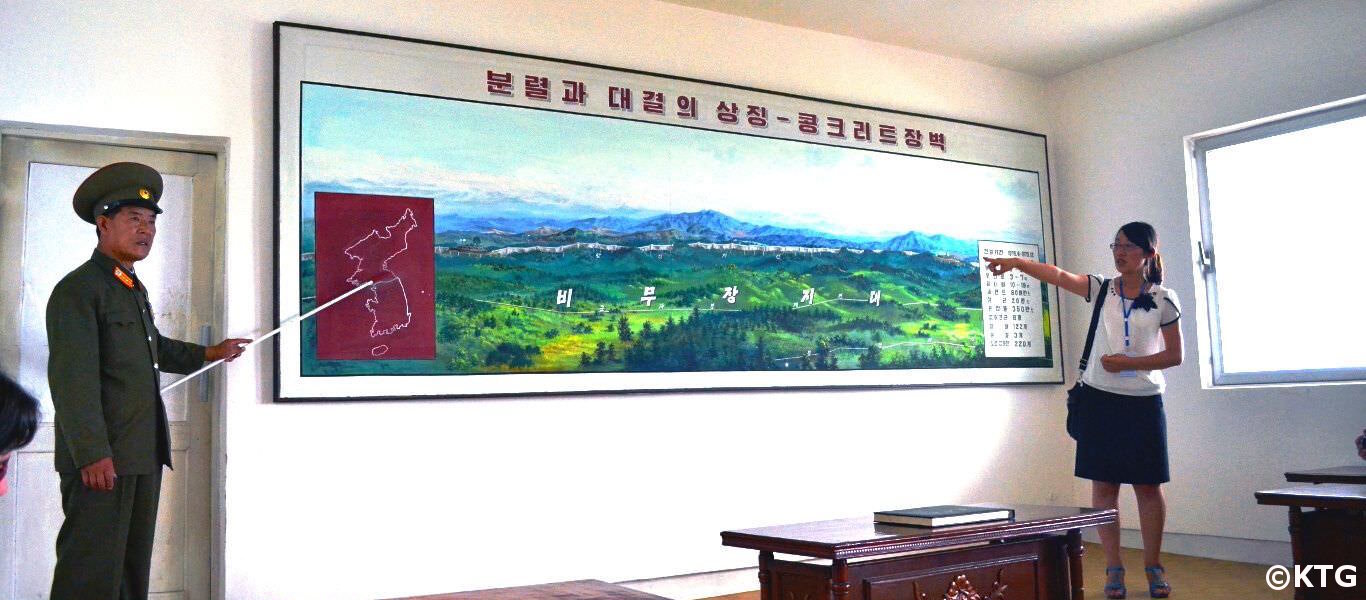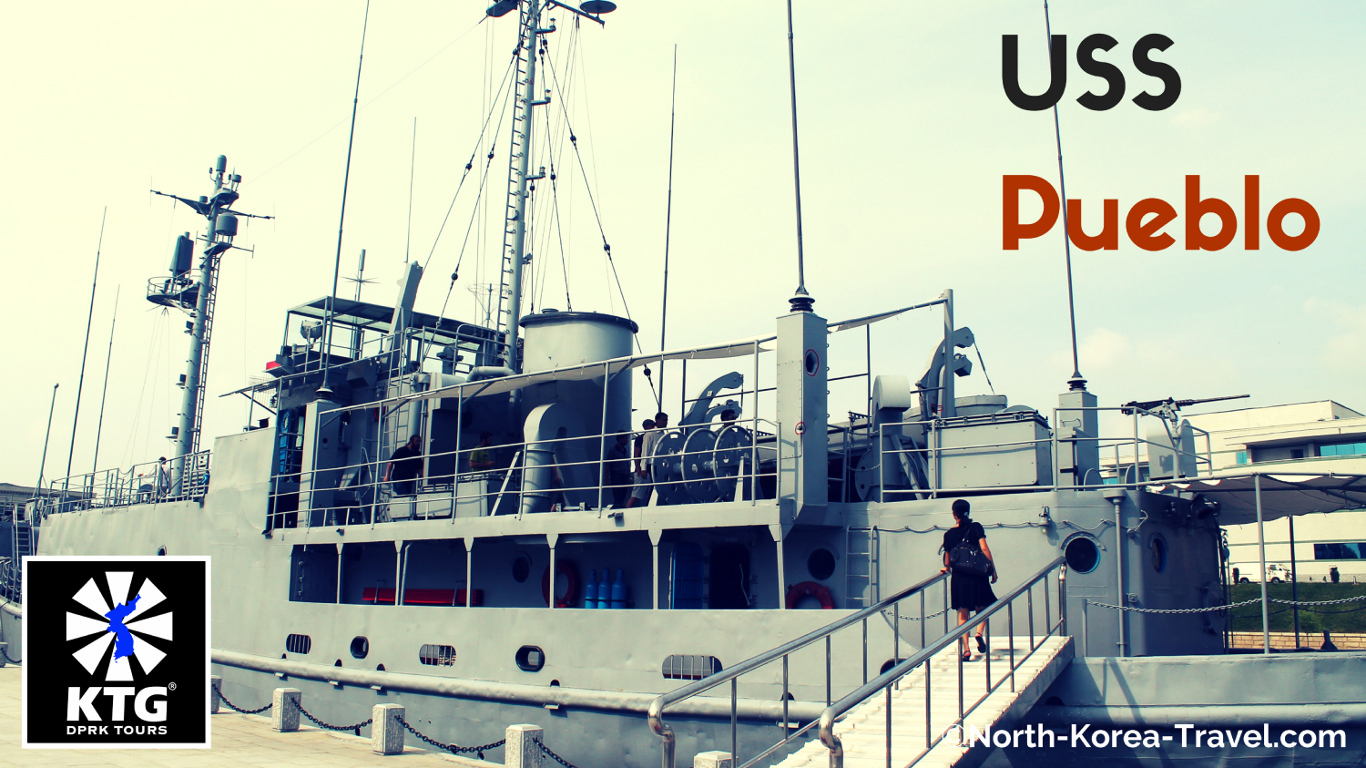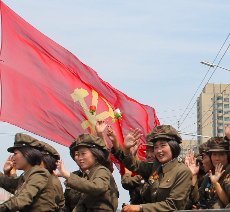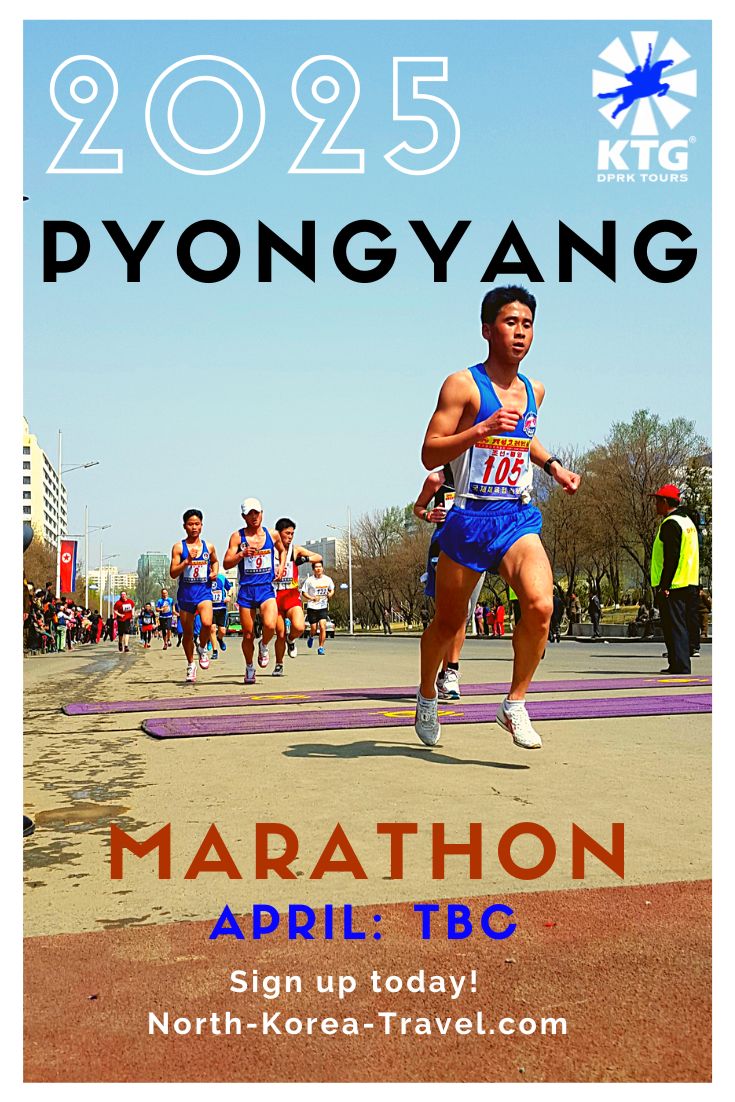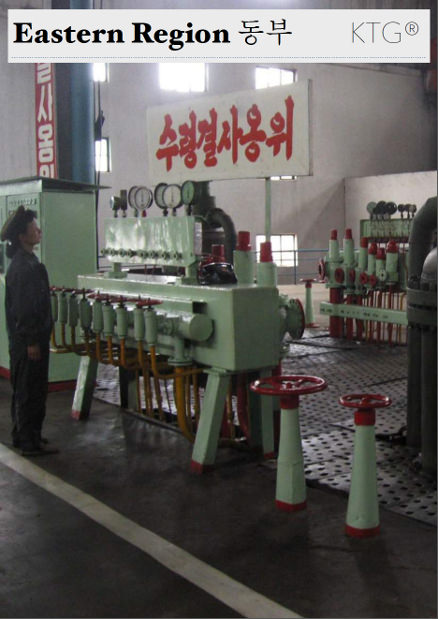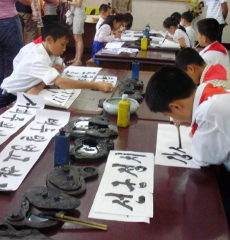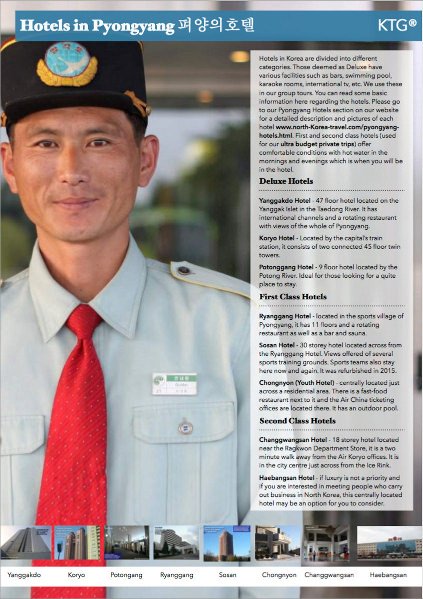North Korea Museums - The Victorious Fatherland Liberation War Museum
The Victorious Fatherland Liberation War Museum is one of the best known North Korean museums. It is an enormous war museum illustrating the DPRK's struggle against the Japanese and, later on, the Americans. The new museum was built in just only 10 months and inaugurated in 2013. The new section is truly impressive. Some areas illustrate to scale different battle scenes. The rotating panorama of the museum can still be visited.
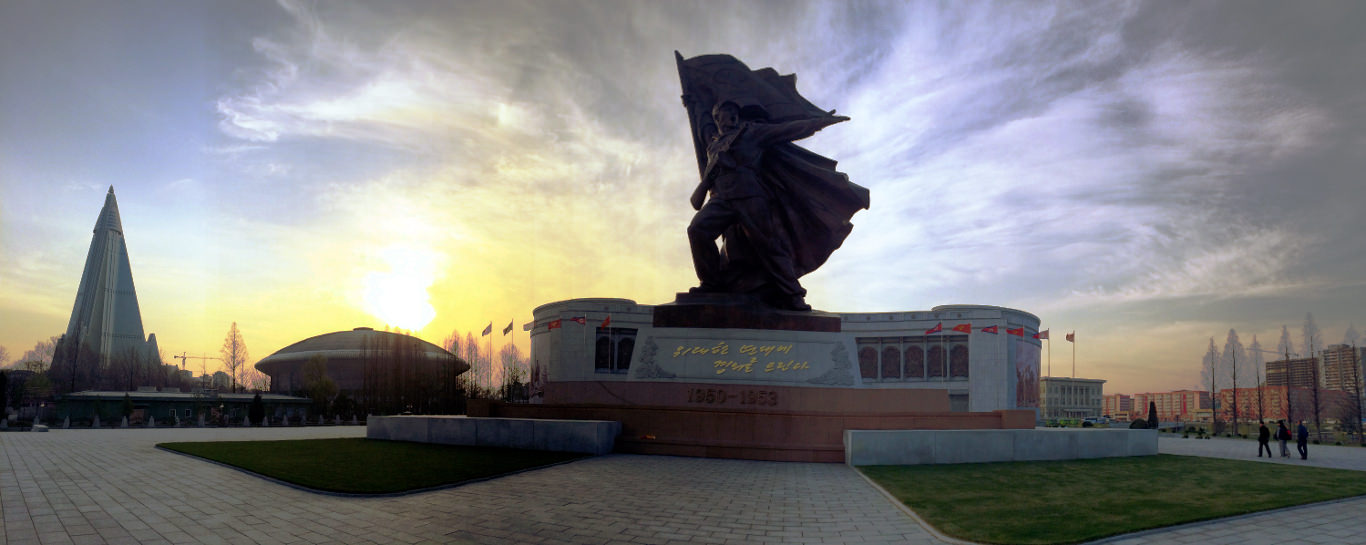
Main building of the Korean War Museum. You can see the famous Ryugyong Hotel in the picture
North Korea Museums: Video of the Korean War Museum in Pyongyang
You can see a short Youtube clip below that we took of the US tanks and other military vehicles captured by the DPRK. Most of them were captured during the Korean War though some were captured later, the most recent being the helicopter in the 1990s that you can see toward the end of our video.
This war museum has a wide array of original military equipment, weapons and vehicles including US captured planes. An English speaking guide neatly dressed in a military uniform will guide you around explaining the North Korean version of the Korean War.
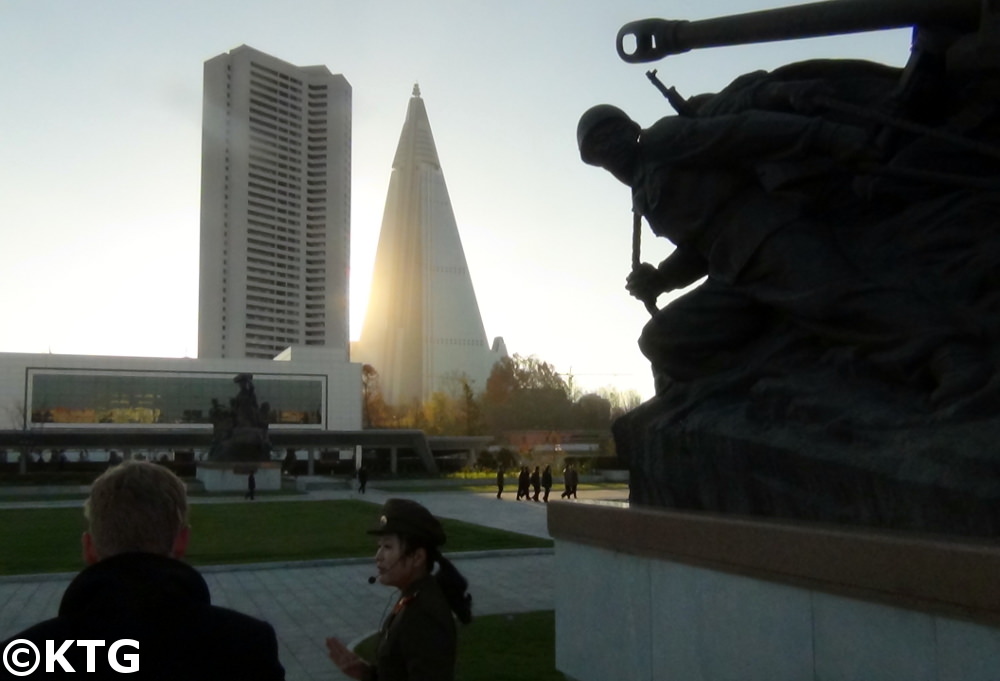
UPDATE: this original post was written back in 2008. The War Museum has now been moved to a new building adjacent to the original one. It is now a huge museum and Pyongyang highlight. The amount of effort and the grandioseness of the new museum are hard to describe in words! The USS Pueblo is now located here too.
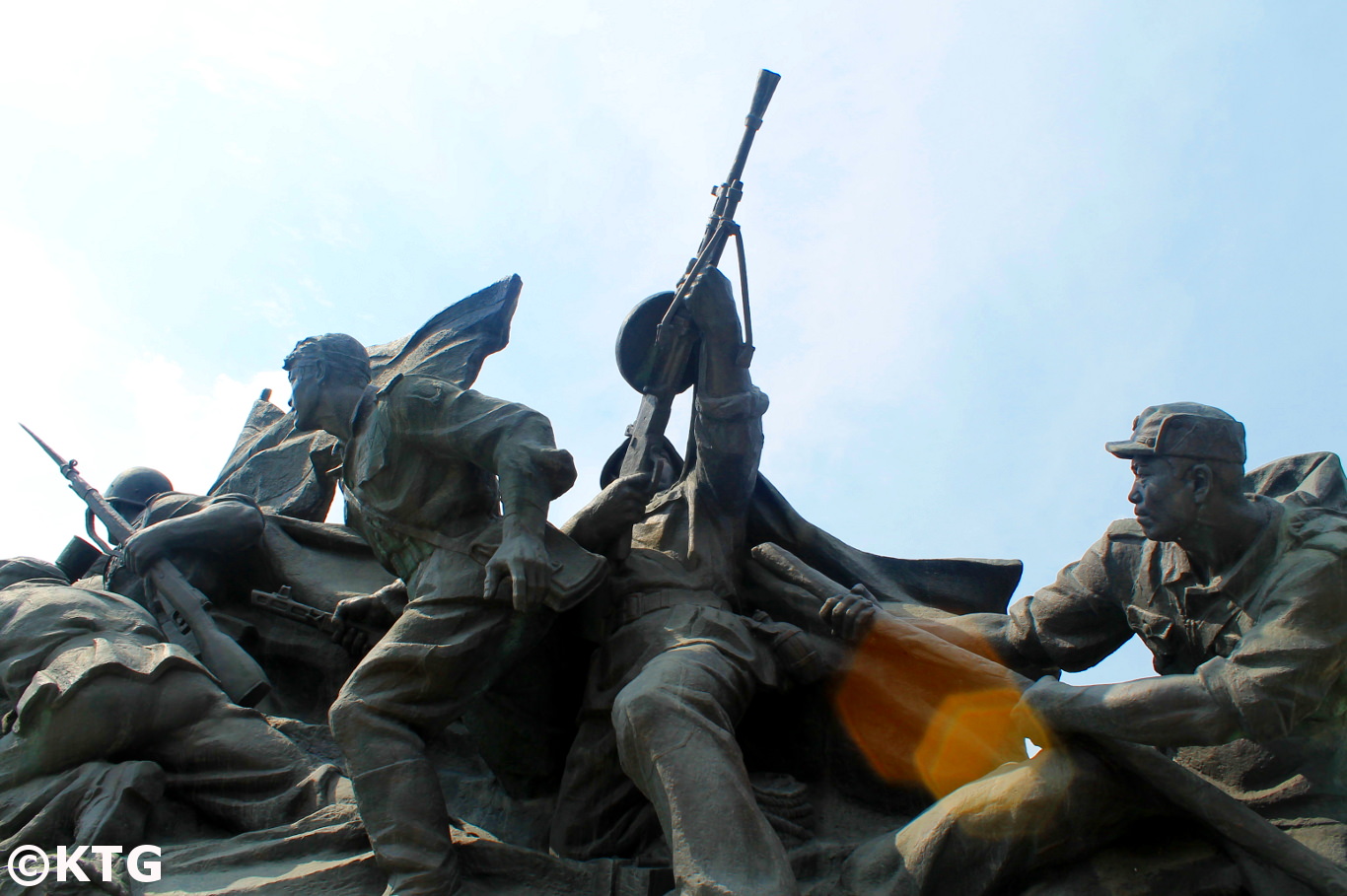
Depiction of a scene of the Korean War (1950-1953). The memory of the Korean War is very vivid in the DPRK
We cannot take pictures inside the museum itself (it is ok to take pictures in the outdoors areas of the museum). There are now wax sections showing Korean cities during the war, areas showing military camps in the countryside, the famous rotating war scene room (but improved), a giant statue of a young Kim Il Sung, new videos illustrating the DPRK version of the Korean War, all located in marble decorated premises. Even our US travellers have told us that this is a highlight of sites in Pyongyang! Please note that Koreans are very friendly with foreigners including US citizens. America does receive quite a bit of criticism but this is at no moment to be taken personally and Koreans do stress that these are directed to the US government for political and historical reasons and not to the people.


















